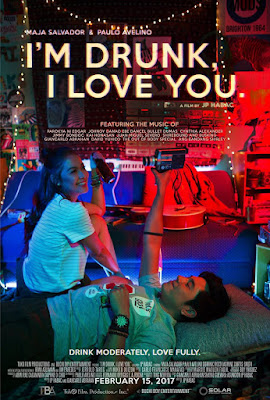WE CREATED THE MONSTER: A REVIEW OF 'JOKER' (2019)
A guys gets stabbed; another one is about to be, and as the latter is about to escape from imminent death, the audience roars in chuckles because of the misfortune, yet by the end of Todd Phillips' two-hour neonoir origin story, not one soul is laughing. The trauma has set in. Or perhaps, a dash of introspection.
As the titular character in Joker, Joaquin Phoenix renders a gripping take on DC's clown prince of crime, thanks largely to his unique maniacal laughter, which is a mix of mockery, sorrow, and later, utter abandon. There is empathy for Arthur Fleck, the man who would eventually be Batman's archenemy, as Phillips dives into the character's psyche, by way of Scorsese's Taxi Driver. There is even a visual homage earlier in the film, as Arthur plays with the revolver given to him by his co-worker--- an allusion to that iconic Robert De Niro scene in Taxi Driver.
However, an examination of how Arthur Fleck morphed into The Joker does not necessarily entail a condonation of his crimes. Through graphic violence, Phillips confronts viewers with their own affinity for lurid subjects, and just like how we would be glued to viral videos of carnage, he makes it hard to look away.
There were a lot of factors that stripped Arthur of his humanity: the state neglected him, society ignored him, and even his own blood betrayed him. Even worse, he was made a laughingstock on national television. As Debord writes in The Society of the Spectacle (1967): "The spectacle was born from the world’s loss of unity, and the immense expansion of the modern spectacle reveals the enormity of this loss."
Just like how the majority of the audience laughed at the misfortune of one character who is about to be stabbed, media has desensitized us to violence. We are united in our subjugation to media, and more specifically, to spectacle. Yes it was probably played for laughs, but isn't it also a litmus test on what kind of person you are depending on whether you laughed or not? (Believe me I struggled to be vague as possible so as not to spoil plot details.)
Arthur is part of the spectacle, the subject of ridicule on "The Murray Franklin Show." The show's host, Murray Franklin (Robert De Niro), could not care less about Arthur. All he's after are the ratings.
Debord elaborates further: "The spectacle is able to subject human beings to itself because the economy has already totally
subjugated them. It is nothing other than the economy developing for itself. It is at once a faithful
reflection of the production of things and a distorting objectification of the producers."
Hence Franklin, as the representative of broadcast media, and perhaps media in general, has an immense responsibility regarding the further alienation of his viewers from reality. People believed Arthur was a commodity to be laughed upon because Franklin deemed it so.
Parallel to this is how Phillips also has a huge responsibility on how viewers will feel about the concepts of crime, anarchy, violence in mass media, and mental health after seeing Joker. There is the danger of romanticizing and justifying violence, which is why discussions and trigger warnings are necessary.
Personally, I do not conclude that a deconstruction of crime would lead to the committing of violence outside the cinema. The storytelling matters. From the beginning, Joker was marketed as an adult film. Locally, it is being shown with an R-16 rating, so anyone 16 years old and above can go see it. However, not all 16 year-olds may be mature enough to separate comic book fantasy from metaphor, hence post-discussion is paramount.
'
It is important to ask audiences, especially the young ones, "Did you like it?" "Why did you like it?" "Were there images or themes that disturbed you?" "What were they and why?" "Were Joker's actions in the end justified?" "Is mass media accountable for the chaos that ensued?"
Joker has proven divisive among critics, and understandably so. Aside from being overhyped, it is dark, gritty, and humanizes a criminal. It is a film worthy of endless discussions. I enjoyed it because of Phoenix's disarming performance, Phillips' singular vision, and of course, the visual references which are obviously fan service. There was an iconic scene near the end that takes place in the open streets, reminiscent of the earlier Batman films, and the film could have ended there and achieved flawlessness. Still, Joker, like the spectacle that Debord lengthily discussed in his essay, is undeniably entertaining. I dare say it is one of the more important additions in the DC cinematic universe, and even the whole comic book sub genre of cinema.
And please, Joker is not an anti-feminist film. It is also not a feminist film simply because it is not that type of film, period.
RATING: 5/5




nice joker,,Thanks for sharing such a wonderful blogs.its very useful.It is a site where you can watch Korean dramas, movies, webtoons, and videos for free. Click our website to see https://mtpang.com/%eb%a7%81%ed%81%ac%ec%82%ac%ec%9d%b4%ed%8a%b8/
ReplyDelete